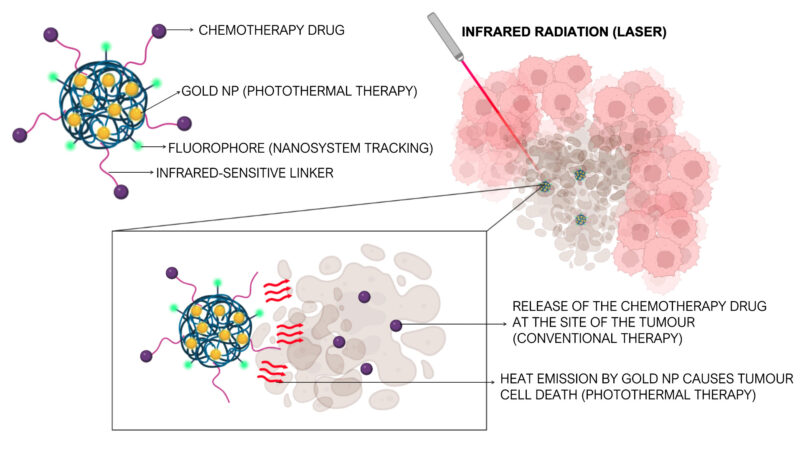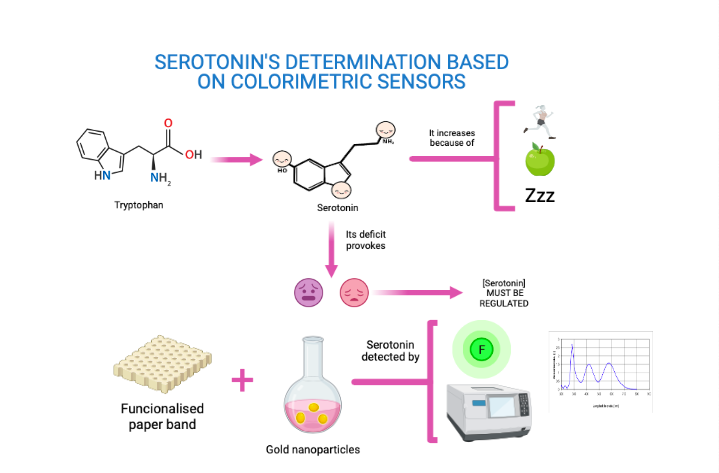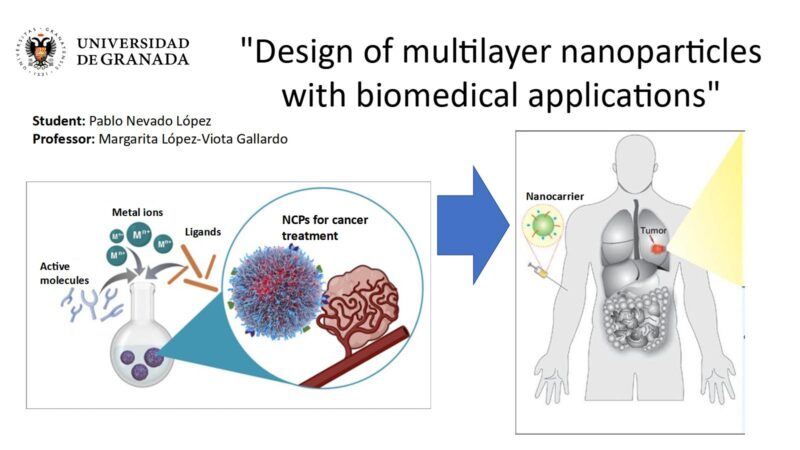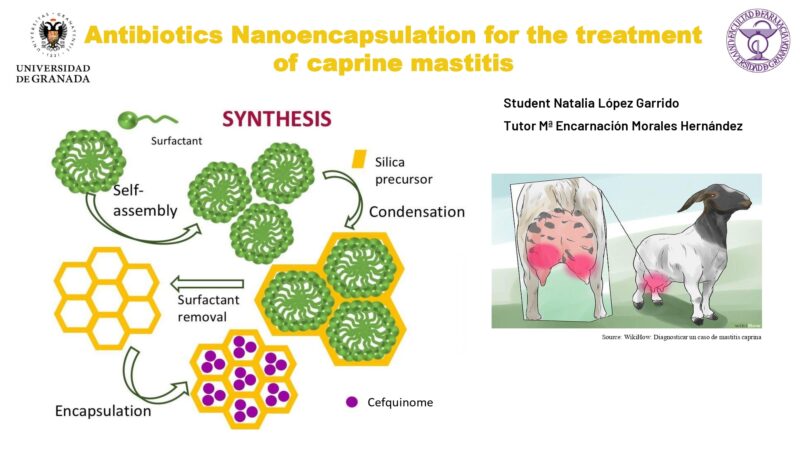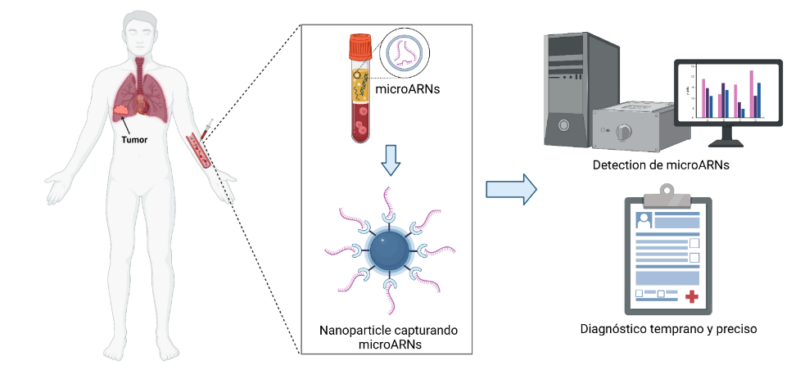
Can you imagine being able to detect diseases using nanoparticles? This method is known as nanodiagnosis and can make early detection of diseases such as cancer much easier, thus improving their prognosis and allowing us to provide more effective treatment in time. To this end, a combination of nanotechnology with other emerging approaches (such as liquid biopsy, which is non-invasive, unlike traditional biopsy) has been proposed as an interesting option for personalized medicine with better results and advantages for the patient. In addition, molecules known as microRNAs have been found to play a crucial role in the development of diseases including cancer. MicroRNAs circulate in body fluids (blood, urine, saliva…), which makes them an ideal tool for non-invasive diagnosis.
Consequently, the main objective of this research is to develop nanoparticles that can recognize microRNAs for the early detection of tumours. Diagnosis can then be confirmed using various analytical techniques. This will enable early, non-invasive detection of a common disease like cancer, with all the advantages this entails. Thanks to research and development in areas such as nanodiagnostics, this goal is getting closer and closer.
Keywords: nanodiagnostics, nanoparticles, microRNA, liquid biopsy, cancer.
Directed by: Agustín Robles Remacho
